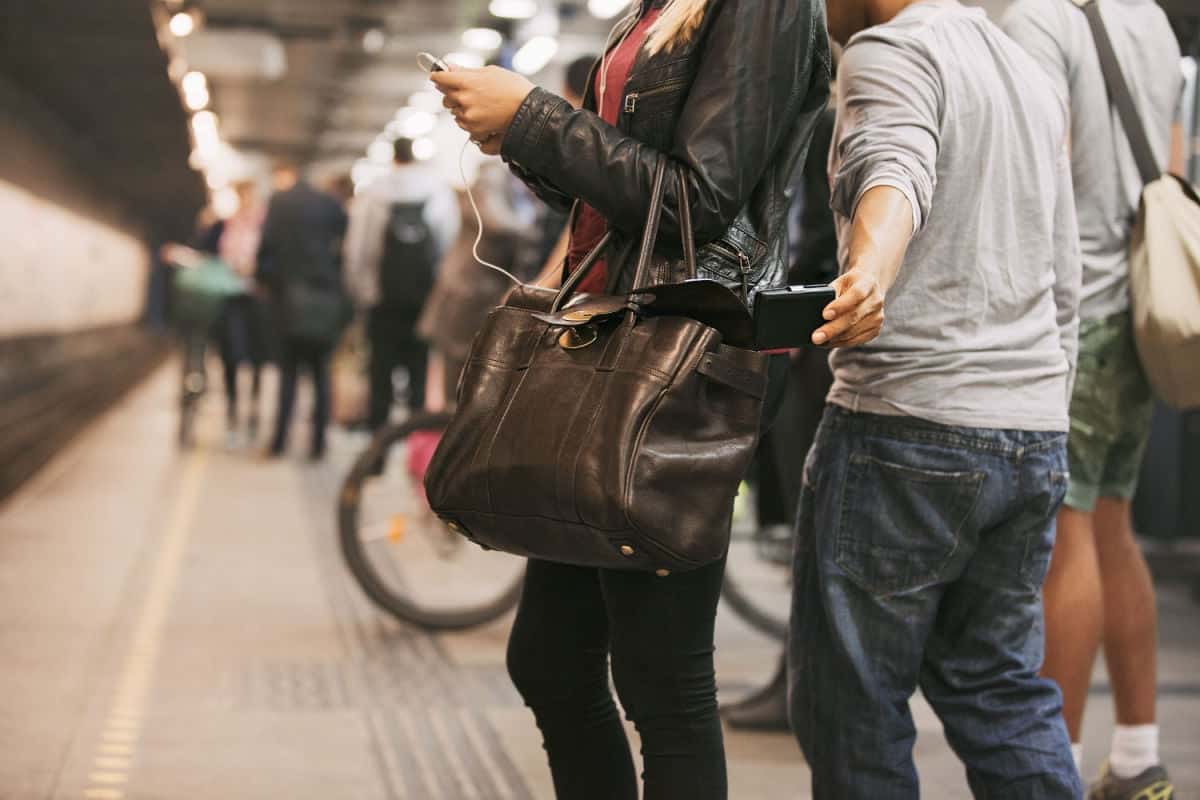Pickpocketing is a common issue, and whether you’re traveling abroad or in a popular US city, tourists are often the targets.
More than 400,000 pickpocketing incidents are reported globally every day, and one-third of travel insurance claims are made because of lost or stolen valuables.
When you’re in a new place, it can be tempting to lower your guard and lose awareness of your surroundings. After all, you’re on vacation, and you want to have a good time. This is why tourists are natural targets for pickpockets.
But with so many pickpocketing cases, it’s important to remain alert and to keep your valuables safe.
With that in mind, here are five ways you can avoid being a victim of pickpocketing this summer:
Be Aware in High-Traffic Areas
Pickpockets love to operate in high-traffic areas. When you’re in a crowd, you expect to be jostled, and that makes it easier for pickpockets to get close to you and access your valuables.
High-traffic areas tend to be places where there are distractions. Whether you are in a train station trying to plan your journey or at a popular tourist attraction taking a selfie, you are likely to be disoriented or focusing on something else when you’re in a location that attracts high volumes of people.

Pickpockets prey on the parts of the city where they know there will be the most tourists, so you’re also most at risk when you are surrounded by other tourists.
One of the most common pickpocketing tactics is called the ‘bump and go’. One thief will pretend to bump into you accidentally then an accomplice will pick your pocket whilst you’re distracted.
This common tactic works best in high-traffic areas, so it’s important to be mindful when you’re in a crowd. If you are bumped, jostled, or if something just doesn’t feel right, trust your instincts and move away from the area.
Keep Your Valuables Hidden
Often measures intended to prevent pickpocketing in popular tourist attractions can actually be used to the pickpocket’s advantage.
One example of this is when tourist attractions boast signs intended to be helpful. These may read ‘beware pickpockets’ or ‘pickpockets operate here’.

When tourists read signs like these, they will instinctively check their valuables: it’s natural to want to make sure that your property is where you left it.
But what you are actually doing is alerting nearby pickpockets to exactly where you are storing your valuables! If you reach to your left pocket, for example, they will know that this is where your wallet is, and they will be able to access it much more quickly.

You can best protect your valuables by keeping them at the front of your body. A discrete money belt will be harder for pickpockets to access.
If you do instinctively reach to check your valuables, then keep your hand on them firmly until you leave the area. This will deter pickpockets and ensure you can feel if someone tries to access your purse or wallet.
Be Wary At The ATM
Credit card skimming is a con that can cost tourists a significant sum, but luckily this is one scam that is easy to avoid. This crime is often referred to as e-pickpocketing.
To avoid this, don’t communicate with anyone that approaches you when you’re using an ATM machine. Often thieves will suggest they can help you access your money whilst avoiding local bank fees, but in reality, they want to use a card skimming device to access your card details.

Avoid using ATM machines in quiet or run-down areas. If someone is standing too close to you when you’re trying to withdraw cash, then cancel your transaction and use a different machine instead.
You should be particularly wary of using remote ATMs if you’re traveling alone.
If you’re still not sure if an ATM machine is safe to use, then consider paying for goods and services by card instead of withdrawing cash. Many hotels will also have ATM machines or currency exchange services that are safe and reliable.
Don’t Flash The Cash
Try to camouflage your wealth. If you have to take out your wallet to pay for something, remove just the cash you need. Don’t reveal a wad of notes. And never count your money in public.
You can also conceal your wealth by leaving any large or expensive jewelry pieces at home or keeping them in your hotel room safe. Expensive designer clothes from big brands are also best avoided.
If you look expensive or are showing off expensive items, then you are implying that there is something of value in your purse or wallet.

Pickpockets look for two things: easy targets and lucrative targets. The key is to avoid making yourself look like either. So as well as hiding your wealth, you should also avoid looking like a tourist.
Items such as baseball caps, college T-shirts or sweatshirts, and big brand logos can make you stand out from the crowd, particularly in Europe, where these items are less popular. And while there’s nothing wrong with standing out, it will make you an obvious target for pickpockets.
Recognize Pickpockets
Finally, the best way to avoid being pickpocketed is to recognize pickpockets and understand how they operate.
If you notice someone loitering in a public place, checking out passers-by, or their purses and shopping bags, then they may be a pickpocket.

If someone that you don’t know is overly familiar, hugging you, or standing too close while offering directions or advice, then they could also be a pickpocket. Remember that pickpockets often work in teams, so the person being overly familiar with you could be distracting you so that their accomplice can take your wallet.
Knowledge is power, so the more you know about pickpockets and the way they operate, the more likely it is that you can avoid being their next victim.

